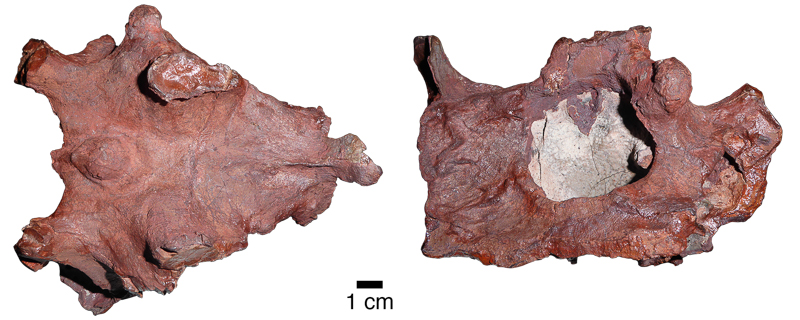Bizarre carnivorous protomammal discovered in Zambia
For immediate release ‐ February 24, 2021
Contact: Jon Pishney, 919.707.8083. Images available upon request
 Skull of Mobaceras zambeziense in dorsal view (left) and lateral view (right).
Skull of Mobaceras zambeziense in dorsal view (left) and lateral view (right).
Museum paleontologist Christian Kammerer has described Mobaceras zambeziense, a new, bizarrely-horned predator from the Permian of Zambia (roughly 260 million years ago). A type of early synapsid (“protomammals” distantly related to modern mammals), Mobaceras was part of the diverse animal fauna that existed before the dinosaurs. It is distinguished by the presence of a “lollipop”-shaped horn on its snout and a series of exaggerated knob-like structures around the eyes. Mobaceras was roughly dog-sized and would have hunted small reptiles and other protomammals in its habitat. The fossils of Mobaceras were collected during recent expeditions to southern Zambia led by paper co-author Christian Sidor of the University of Washington.
Read the article in: Papers in Paleontology
For more information about our upcoming activities, conservation news and ground-breaking research, follow @NaturalSciences on Instagram, Twitter and Facebook. Join the conversation with #visitNCMNS.

